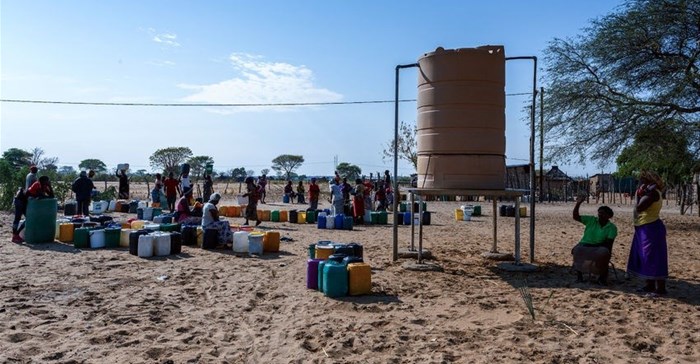The Southern African Development Community (SADC) has convened a two-day consultative meeting in Johannesburg to develop preparedness and response strategies on agriculture, food and drought in southern Africa.

©Zdenek Maly via
123RF - Namibia, Kavango
The multi-sectoral stakeholder's consultative meeting was scheduled to take place yesterday and today said a media statement issued by the SADC secretariat on Wednesday. The meeting is set to deliberate on the current El Niño weather condition and its impact on agriculture, food and nutrition security that has plagued the region.
Rendered vulnarable
It is reportedly one of the worst in Namibia's history, with the country's capital city having declared a severe water shortage in December 2015 and government rolling out food aid countrywide.
The El Niño phenomenon is caused by warmer than average sea surface temperatures in the eastern Equatorial Pacific and is usually associated with reduced rainfall in some regions. El Niño has greatly impacted the food and nutrition security of millions of vulnerable people. The devastating drought in the Southern African region, specifically Namibia, claimed hundreds of livestock, and threatens the livelihood of a multitude of crop and livestock farmers.
Agriculture is one of the biggest employment creators in many African countries, and in southern Africa, over 70% of the population depends on rain-fed agriculture for their livelihoods and as a means of survival and income. The last state of emergency on drought in Namibia was declared by former President Hifikepunye Pohamba in 2013.
Understanding El Niño
The statement said 165 delegates from various sectors such as agriculture, environment, food and nutrition, disaster management, climate change, water scarcity, health, planning and financial sectors are expected to be part of the SADC meeting that is organised by the Food and Agriculture Organisation of the United Nations and the World Food Programme. Participants include representatives from the humanitarian, development and donor communities.
The meeting is aimed at forming an understanding of El Niño and essential actions on how to prepare, respond and mitigate its impact through a coordinated and multi-sectoral approach on a regional level.
Participants will share information on issues of great priority such as agriculture, sanitation, water, and food security. Recommendations will follow suit in a bid to enhance national and regional preparedness, as well as multi-sectoral programmes for short-term and resilience response actions on the El Niño impact.
The SADC secretariat will also pursue and identify regional coordination and mitigation actions with fellow member states.
Nampa


































